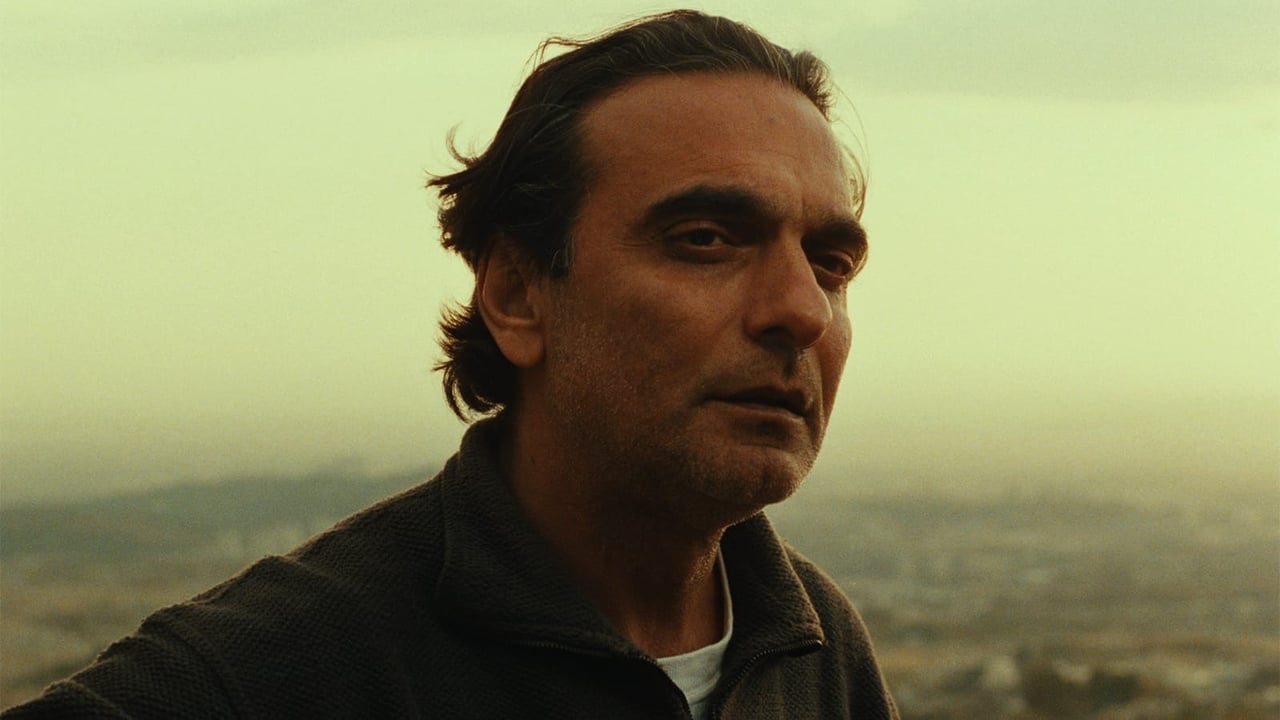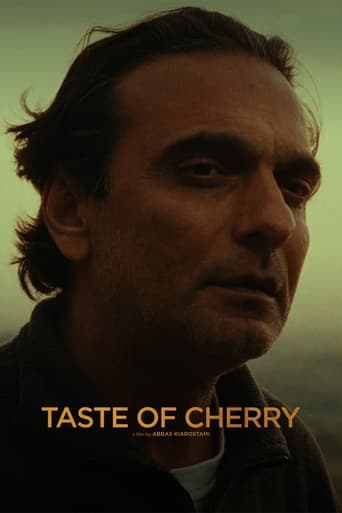

A camera blandly following the exterior of a car and occasionally being set on two faces inside a vehicle whilst they hold boring, unrealistic and base philosophical discussions is not film making. Yes, I understand the metaphors of the barren landscape etc but please, there is no art to this. I would expect more from first year film students. It's one of the most basic and empty films I've ever seen. The script would have been better turned into a short story, maybe, but a movie this is not.
... View MoreThis movie might remain my favourite even if, by my own admission, I have not yet explored even the tip of the iceberg called 'Cinema'. Watching the movie was a cathartic experience for me because the thoughts that the protagonist goes through, I have also felt many a times, maybe not because of difficulties that one faces rather the sheer overwhelming nature of Life itself. The whole Nietzschean saying about being able to sleep many a night with the thoughts of suicide ring harrowingly true. The details in the movie are so flawless that it almost stings you. The conversations, the thought process, the scenery, all add to the tragic finale we all expect to see. But here, the Director surprises us. The end may disappoint us but it also makes us think 'Why'. And this is perhaps the most important question-answer that one can take from the movie. I have only watched it once but I don't think subsequent viewings will help much in telling me what the movie is about- Life, Death, Suicide, Choice or is it all a Mirage. Hope you 'enjoy' the movie and are able to find something meaningful.
... View More3 drastically different stories unfold from the same scenario, kind of like Rashomon. It takes until towards the conclusion of 1st "story" for us to know what Mr. Badii's intent is, and when we find out he wants help from somebody to bury him the dialogue becomes very deep and thoughtful.There are plenty of good lines in this film, such as "you cannot use the spade, but you can use the gun," questioning the difference between two methods of going about killing somebody. There is definitely more of a cowardice behind the use of a gun, and the soldier embodies this by fleeing the car before answering if he will help Mr. Badii.The film has a brilliant structure, making it seem like three stages of life. We have the young soldier, representing that we fear death in youth. Then we have a slightly older man who has a religious background who explains the problem with suicide. This represents an awareness of death, but the man trying to convince Badii that suicide is a sin shows not necessarily coming to terms with death just yet.The final conversation is the longest, and it revolves around an older taxidermist. Not only is he closer to death than Badii, he is familiar with death since he is a taxidermist. He is also extremely wise and has a lot to say about why Badii should reconsider, but he also accepts the job, showing an acceptance of death. It is also important to note that the film takes place over one long day, and with night coming at the end of this day it represents the ending of life in a sense.This is a really brilliant movie with such a strange ending that I still do not quite understand. I would have liked if the film had ended when they day ended rather than the ending that reflects on filmmaking. In my opinion, this is a near-perfect film.
... View MoreI assumed this Iranian made Persian language film that I found out about from the book 1001 Movies You Must See Before You Die would be about something chipper and cheerful, the subject was not what I expected at all, from director Abbas Kiarostami (Close-Up, Through the Olive Trees). Basically middle aged Iranian man Mr. Badii (Homayoun Ershadi) is driving through Tehran in his car looking for someone to help him, and he is offering a large sum of money for whoever will do the job he is asking, he wants to commit suicide, and he is looking for someone to bury his body after he is dead, in a spot he has already chosen. He picks up random people as prospective candidates, starting with friendly conversation, getting to know more about them, and then eventually one by one he reveals his plan to them, all he needs them to do is cover him with earth in the grave he has dug, their reactions all seem different. The young and shy Kurdish soldier (Afshin Khorshid Bakhtiari) is quickly shocked by the proposal and refusing to do the job runs away from the car, the Afghan seminarist (Mir Hossein Noori) is against a man killing himself for religious reasons and also refuses to do the job, but the third man, an Azeri taxidermist (Abdolrahman Bagheri), does not object. The taxidermist is willing to do the job, because he needs the money to give to his sick child, but he tries to persuade Mr. Badii not to kill himself, because he attempted suicide himself and only stopped after tasting mulberries (this is obviously the meaning behind the title), but he agrees he will cover his body if he finds him in the grave and dead in the morning. That night Mr. Badii leaves his car and walks in the darkness to the grave, a thunderstorm is beginning, but he lies in the hole, and he presumably kills himself, as the film blacks out, and the final shots of the film are behind the scenes camcorder footage of the crew making the film. In the leading role Ershadi gives a compelling performance, it is interesting you do not find out why the character wishes to kill himself, but on the other hand it adds to the intrigue of him trying to find someone willing to put him in the ground after he's done himself in, based on morality and mortality it is a fascinating story and most watchable drama. Very good!
... View More